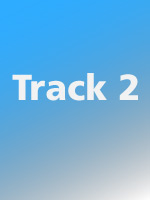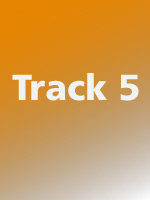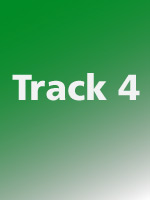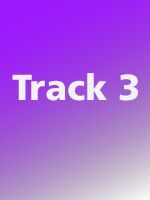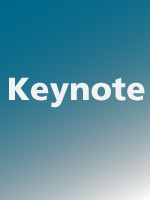Presentations
-
View Presentations by Track | View Conference Schedule
- 3.5″ to 30″ Video (starts at 16:19) Today, several options are available to publishers to present their books in electronic format. Those options include traditional web, mobile-friendly web and/or apps and reader formats. The choice of e-format is not only a question of screen size and taste. It is, to a far greater extent, a matter of use case. The presentation uses practical examples from a publishing platform used by one of the leading Can
- A Public Value Analysis Tool for Open Government Planning Video (starts at 31:20) Open Government has traditionally been defined in terms of transparency, participation, and collaboration, however the real value of Open Government is in the public value that these principles generate. The Center for Technology in Government at the University at Albany has developed a practical decision support tool, known as the Public Value Assessment Tool (PVAT), to help decision makers in government ag
- A Statutory “Time Machine” Video (starts at 4:50) Most online collections of codified statutes or regulations present a static view: the law as it is the day you are looking. But sometimes one wants to view statutory or administrative law as it was, as it might be if pending legislation or rulemaking is adopted, or how it has changed over time. We have been playing with a "time machine" that makes it easy to see the language of a statute as it was at any poi
- AfricanLII: A Community Portal for African Law Video (starts at 7:50)
- Bedfellows: What Open Access Has to Do With Public Engagement, and Why Video (starts at 17:30) Programs that create the means for citizens to engage government are all the rage, and now we're featuring them at LVI for the first time. Why? What do these programs have to do with open access to legal information? How can the two help each other, and why should they? The answers to these questions have to do with technology, with education, and above all, with dry cleaning. [download id="28"]
- Birds of a Feather Video (starts at 8:45) This session is a panel discussion about taking publicly available data and turning into an application, web or otherwise that adds value to that data and transforms it into something useful beyond the data itself. The members of the panel have been selected because they have created such applications. Among the themes of the discussion: Data visualization and better user interf
- Building a Free, Open Source Legal Citator Video This presentation will describe how we built an online application which detects citations in court opinions, creates links between cases, and tracks the resulting citation network. This presentation will describe the problems we encountered and solved, as well as directions for future work. A demo of the citator will also be provided. [download id="10"] [download id="11"]
- Can We Trust What’s Online? Conclusions from the National Inventory of Legal Materials Video (starts at 5:30) During the past three years, hundreds of law librarians around the country have contributed more than 7,000 legal titles to create the first-ever National Inventory of Legal Materials. The inventory covers all three branches of government at the federal, state, county and municipal levels and includes questions related to copyright, cost to access, digital authentication, permanent public access, preservation
- Cases of Political Crowdsourcing in Morocco Hundreds of thousands of Moroccans are participating in the political sphere using online crowdsourcing tools ranging from popular constitutional drafting to the fight against corruption. This presentation outlines national pioneering cases and discusses the power and the challenges of crowdsourcing in politics.
- Citation t1/2: Evolution of Supreme Court of Canada Decisions’ “Half-Life” 1900-2000 Video (starts at 10:55) A public digital collection of Supreme Court of Canada decisions going back to 1900 is now accessible. It could be used to validate new kinds of hypotheses. The measures of citation patterns in that collection will be used to shed light on phenomenons which have been difficult to apprehend in the past. This presentation hopes to contribute to the understanding of the case law system in Canada. It can as well
- Creating Open Government Ecosystems: A Research and Development Agenda Video (starts at 7:45) In this paper, we propose to view the concept of open government from the perspective of an ecosystem, a metaphor often used by policy makers, scholars, and technology gurus to convey a sense of the interdependent social systems of actors, organizations, material infrastructures, and symbolic resources that can be created in technology-enabled, information-intensive social systems. We use the concept of an ec
- Creating Public Value through Government Innovation: The Case of Open Government Video
- Crowdsourced Relational Law and the Redefinition of the Public Space Video (starts at 31:50) The Web of Data and the rise of Web 2.0 technologies hopefully will bridge the adoption of Semantic Web Services. Adopting such a perspective in the legal domain requires first a redefinition of the public space. We propose four fundamental concepts to redefine it: crowdsourcing, crowdservicing, regulatory systems and relational law. We will focus especially on a model for Open Access publishing and archivin
- Developing a Real Free Law Reporter as the Source of Court Opinions Video (starts at 40:45) The goal of the Free Law Reporter (FLR) is to develop a freely available, unencumbered law reporter that is capable of serving as a resource for education, research, and practice. This presentation will explore what a national repository for original format court opinions would look like and how it would be used by commercial, not-for-profit, and academic publishers and researchers.
- Digitising Australasian Legal History Video (starts at 34:50) AustLII has in 2012 embarked on a two year program of comprehensive digitisation of all the key sources of 200 years of Australasian legal history back to the inception of each colony and territory in Australia and New Zealand. This paper will explain how the project is being carried out, demonstrate its initial achievements, and discuss the challenges presented by particular categories of sources and how th
- E-Government and Its Limitations: Assessing the True Demand Curve for Citizen Participation Video (starts at 14:30) Many e-government initiatives start with promise, but end up either as digital "ghost towns" or as a venue exploited by organized interests. This paper discusses e-government in the context of the literature on the demonstrated demand curve for citizen engagement. It highlights two policy pitfalls and discusses values and design features which can enhance e-gov in the future. [download id="30"]
- E-Participation: Cases From Around the World From the Orange revolution in Ukraine, through the Open Government Directive of the Obama Administration, to the Arab spring – over the past decade we have witnessed numerous examples of e-participation initiatives around the world. This panel will delve into detailed discussion of a number of cases featuring different kinds of civic participation in various parts of the world. Moderator: Dmitry Epstein, Cornell eRulemaking Initiative, Cornell Law School
- E-participation in Local Climate Initiatives: From Collective Engagement to Measurable Impacts? Video (starts at 37:00) Public participation in the field of climate policies has considerable potential that largely lies idle. Local governments in Austria, Germany and Spain have taken an innovative approach based on citizen panels collaborating on CO2 reduction supported by online carbon calculators and other electronic tools. In the light of theories of environmental democracy and sustainable citizenship, empirical research re
- Enhancing the Visualization of Law Video (starts at 40:50) This presentation surveys the state of the art in online visualization of legislation and the implications of such visualization for the ‘usability’ and ‘readability’ of law. The presentation will explore potential enhancements of widely available visualizations drawing on techniques from the field of information visualization, methods demonstrated on small scale sites or in non-legal contexts. A survey of c
- Feedback Loops and the Law Video (starts @ 33:00) Although feedback loops are ubiquitous in the information economy appearing everywhere from organizational dynamics to customer feedback on Amazon.com, feedback loops are strangely absent from law. What few feedback loops can be found in legal systems are crude, sluggish, and under-inclusive. AfricanLII and its partners are experimenting with a mechanism by which users can engage with the legal information pr
- Hypertext Markup in Bilingual Environment: The Challenge for HKLII Video (starts at 22:30) The Hong Kong Legal Information Institute (HKLII) provides the general public, free of charge, online legal information relating to Hong Kong. To cope with the bilingual nature (English and Chinese) of the Hong Kong Legal System, HKLII is designed to have the capability of handling both English and Chinese documents. In this paper, we will examine and present our solution to the problem of hypertext markup o
- Implications of Publishing Legal Information in a Small Island State: Privacy v Open Justice Video (starts at 6:10) The power of modern Internet search engines means that anything published on-line, anywhere in the world, can be at our fingertips in a fraction of a second, having serious implications for a small island jurisdiction wishing to make its case law available on-line. The Jersey website is funded partly by government and partly by subscription, causing the website to be split into areas to cater for different au
- Joshua Tauberer: Observing the Unobservables in the United States Congress Video (starts at 10:15) The political reality we know today is entirely manufactured. Can Big Data help us cut through the spin to see what is really going on? Yes it can. This talk will present several statistical techniques used on GovTrack.us to quantify what is really going on in the U.S. Congress, including applying Google's PageRank algorithm to Members of Congress, principle components analysis on bill sponsorship, and logis
- Keeping your Eye on the Ball: Current Awareness for Policy-making Based on Free Legal Resources Video (starts at 18:50; video unavailable, but audio and accompanying slides work) When thinking of a free legal resource’s primary benefit, we quite often imagine the typical user as being one gearing up for a legal battle, or at least somebody conducting legal research. But freely accessible legal information can also serve to inform and support policy-making efforts and advocacy. The presentation will demonstrate two business ca
- Law Students, Technology, 21st Century Law Practice and the Access to Justice Gap Video (starts at 50:40) In a 2002 research project conducted by the Institute of Design at the Illinois Institute of Technology “Access to Justice: Meeting the Needs of Self-Represented Litigants”, the authors defined the problem thus... “Civil justice reform in the United States has failed to address the problems faced by self-represented litigants in their efforts to obtain access to the justice system. Although the great majo
- Lawyering in the Digital Age: Technology Collaborations for Access to Justice Video (starts at 10:25) The primary focus of this presentation will be by Prof. Conrad Johnson who will describe the Four C’s initiative and the Collateral Consequences Calculator.
- Legislative Information: A Legislative History Video (starts at 7:00) Legal information institutes rely on the production of data from public sector sources. What motivates a legislature to build the technological and organizational infrastructure to produce that data? This session provides insight into that question by examining key legislative actions that impacted the availability of Congressional information in the United States.
- Making Legal Information Smart, Friendly and Inspiring Video (starts at 9:50) [download id="5"]
- Mining Legal Gold: A Social Approach to Navigating a Multimedia Legal Archive Video (starts at 10:30) The Oyez Project at Chicago-Kent, a multimedia archive of the Supreme Court of the United States, has developed a tool that takes a social approach to identifying key points in its dataset. By tracking basic user interactions, the tool helps to highlight moments of particular interest in an otherwise overwhelmingly large collection. This presentation will discuss the tool's design and implementation, and wil
- Modeling an Open Government Information Polity Video (starts at 6:30) This presentation discusses a new approach to improving government openness that is under development at the Center for Technology in Government, in collaboration with SAP. The research is developing a way of modeling, what we are calling an opening government information polity, that will aid government decision makers in understanding and evaluating the impact of different technology, management, and policy
- Monday Keynote Address: Richard Susskind 'Liberating the Law Yet Further' Susskind will identify the major drivers of change in the legal marketplace, discuss ongoing policy changes in relation to public information, and introduce a variety of disruptive technologies that will transform the way in which citizens and organisations obtain legal help. He will argue that legal information will not be fully liberated until the working practices of lawyers and the courts are overhauled.
- Open Standards and Open Source Applications for a Sustainable Open Access to Parliamentary Activities: the Experiences and Applications of Africa i-Parliaments Video (starts at 40:00) African i-Parliaments Action Plan, an initiative of the United Nations Department of Economic and Social Affairs (UN/DESA), was designed to build upon the technological opportunities provided by the Open Standards (OS) and Open Source Software (OSS). These opportunities have been largely ignored by the development assistance when in fact they are an unique opportunity to empower parliaments to effectively de
- Opening Government: Managing Complexity and Producing Public Value Opening government initiatives have become central to a wide range of important policy and program goals of public administrations worldwide. These broad goals require initiatives that are both technologically sound and tailored to the demands of complex governance contexts in which they must function. Design and development of open government projects therefore require holistic analyses and planning that is suited to the task. Research and practice projects are providing provide governments with improved capabilities to better understand and support open government initiatives that look to in
- Organizational and Business Perspectives on Open Access to Information Video (starts at 6:55) Based on the Cornell's arXiv.org sustainability initiative, the goal of the presentation is to discuss the business and governance aspects of open access initiatives. Open access models are instrumental in removing financial barriers that may pose barriers for public engagement and participation. However such communication models should not be conflated with free production. Open access does not entirely remo
- Participation 2.0: Online Engagement and Democracy Video This presentation will focus on Participation 2.0, which refers to the use of Internet and social media technologies to engage citizens in issues of public concern. First, I will provide a very brief history of Participation 2.0. Second, I will turn to an examination of why Participation 2.0 matters, specifically focusing on this issue from the perspective of democracy and democratic theory. I will also briefly discuss the “c
- Putting the Law Online: Balancing Litigant Privacy and Access to the Law Video (starts at 31:55) Those that operate websites that provide free access to court opinions experience something that few others will: frequent, sometimes daily, (often angry) requests that court opinions be removed from their site or blocked from discovery by search engines. This presentation presents an empirical study of the nature of these requests made upon collections of federal Circuit Court of Appeal decisions. After des
- Reconsidering the Meaning of “Free Access to Legal Information” After the Hague “Guiding Principles” Video (starts at 15:00) The main questions asked in this paper is "after twenty years of development, what should 'free access' mean in relation to legal information in order for it to be fully effective?" and 'what steps should be taken to most effectively realise a reformulated concept of 'free access to legal information', by legal information institutes, by States at the national level, and at the international level'. It argue
- Reflex 2: A Look at the Internals of an Automated Legislative Citator Video (starts at 41:00) Reflex is the technology developed by Lexum to hyperlink cases and statutes on CanLII. We introduce several new approaches to facilitate the development of our citator including token based regular expressions and a generative model to efficiently recognize variations of citations and titles. [download id="26"]
- Reporting the Law in Perennial Time Video (starts at 11:35) Who are these Reporters of Decisions, and why are they demanding these impossible things of me? This presentation explores the responsibilities, needs, and goals of the government officials who report court opinions not as breaking news, but as precedent meant to shape the law for ages. [download id="25"]
- Search Engine Optimization and Implementation of Google Search Appliance in the Danish Legal Information System Video (starts at 35:40) As a response to user demands and political interest, access for search engine crawlers was allowed to the Danish legal information system, and the case story will explain how the best and most correct results were obtained for end-users of the general purpose search engines. With the satisfying result of SEO we decide to implement Google Search Appliance in our system to give end-users an alternative to
- Searching without Search Terms: Mapping Concepts to Authorities in Law Video Legal documents generally contain a rich set of authorities and references including cases, legislation and law journal articles. This underlying structure can be utilised to facilitate different forms of searching and categorisation. Patterns of references can be used to describe materials falling in distinct clusters. Applications of this approach discussed in the paper include: lateral search (that is, using vectors of sim
- Steve Ressler: Beyond Cats & Kardashians – How to Build Meaningful Online Engagement Video (starts at 21:45) Building meaningful engagement online is a difficult challenge. If it were easy, you would have created Huffington Post yourself and be sitting on $300 million. At first, it's simply hard to make people aware that you exist as you are competing with millions of other websites with cat videos and Kim Kardashian photos. Once there, how do you turn people from lurkers and consumers to engaged participants
- Sustaining the Free Law Enterprise Video (starts at 5:55) Tim will cover the best ways Websites that provide free legal and regulatory materials can monetize their content to support their development efforts. Tim was a cofounder of FindLaw.com and is currently CEO of Justia.com, which provides free legal information and commentary.
- The Capacity to Endure: Leveraging the Question of Sustainable Free Access in the New Zealand Context Video (starts at 6:20) In 2010 the global research project "Free Access to Law – Is it here to stay?" began under the research directorship of Professor Daniel Poulin of the University of Montreal. It focuses on building case studies on the operational sustainability of free access to law projects. Whilst not the subject of a case study, the New Zealand Legal Information Institute (NZLII) is on track to sustainability, if the measu
- The Case for Curation: The Relevance of Digest and Citator Results in Westlaw and Lexis Video (starts at 9:25) Humans and machines are both involved in the creation of legal research resources. For legal information retrieval systems, the human-curated finding aid is being overtaken by the computer algorithm. But human-curated finding aids still exist. One of them is the West Key Number system. The Key Number system’s headnote classification of case law, started back in the nineteenth century, was and is the creation
- The Challenges Facing Law via the Internet in Tanzania Video (starts at 9:40) Tanzania is one of the five Countries forming the East African Community, which located between longitude 29o and 41o East, Latitude 1o and 12o South with an estimated population of about 43 million people. The country is very vast, with a total surface area of 94.3 million Swahili, which is a Bantu language, with some Arabic and Far East influence, is the main language, spoken by almost every citizen on this
- The Development of Translation Memory Database System for Law Translation Video (starts at 25:50) We introduce the development of “Japanese Law Translation Memory”: a translation memory database system for translating Japanese laws and regulations. We aim to show the background and purpose of the development, overview the database and functions of the system and discuss about problems and tasks for further development. [download id="9"]
- The Impact of Semantic Web Technologies on Legal Provisions Accessibility: Reasoning over Implicit Patterns Video (starts at 4:55) The development of the Semantic Web in the legal domain is an essential precondition to guarantee advanced services able to manage the complex nature of legal information as well as the peculiarities of legal users’ information needs. A model of normative provisions and related axioms using RDF/OWL are presented as a contribution to facilitate accessibility to legislation. In particular, a design pattern able
- The Promise and Peril of Using ICTs to Advance the Rule of Law and Access to Justice Video (starts at 35:20) Around the world, information and computer technologies (ICTs) are being used to advance development in areas such as health, education, and poverty alleviation. While the legal and judicial sectors have been slower to catch onto this emerging trend, they are beginning to experiment with these new tools to advance the rule of law and provide greater access to justice. Certainly, the potential of this new a
- The Promise and the Reality of E-Participation I & II The Internet, and particularly Web 2.0, brought with it a significant promise for direct democracy. More than half a decade after the term “participatory web” was coined, there are still mixed results in the area of online civic participation. This panel will explore the tension between the promise and the realities of e-participation, highlighting best practices and principles for the use of information technology for civic participation. Moderating: Session 3 - Dmitry Epstein, Cornell eRulemaking Initiative, Cornell Law School Session 4 - Mary Newhart, Cornell eRulemaking Initiative,
- Track 2 Headliner: David Curle The Business of (Un)Open Legal Publishing: Lessons From the Commercial Publishers Video (starts at 16:00) The commercial legal information players have transformed themselves, and they are no longer simply information providers. Some of the changes they have gone through have implications for open access legal information as well. This presentation takes a historical look at the development of legal publishers s
- Track 3 Headliner: Gherardo Casini Video (starts at 24:00) Mr. Casini will provide an overview of today’s international framework surrounding legal information and legal informatics, highlighting in particular the role that legislatures, in cooperation with other governing institutions and stakeholders, can play in promoting access to law and the law-making process.
- Track 5 Headliner: Anurag Acharya Legal Search for Everyone: The Google Scholar Approach Video (starts at 11:00) We believe that a legal search that works for everyone, experts as well as non-experts, is a key component of making law accessible to all. I will describe how we have tried to build such a service in Google Scholar. I will present some of the problems and our approach in addressing them. I will share experiences and lessons learnt.
- Tuesday Keynote Address: Clay Shirky Authority in an Age of Open Access The overlapping but not synonymous categories of expertise and authority have been tied up with the concepts of access to canonical information and the right to certain forms of public speech. Who can see what information, and who can talk about it in sanctioned ways, have co-evolved with the mechanisms of access and speech themselves. As the digital revolution alters the cost of ubiquitous access to information, and provides the material basis for every consumer of information to be a producer, the practical possibilities inherent in the current media lan
- Under the Hood of Online Civic Participation: Lessons from the Regulation Room Video (starts at 8:25) Rulemaking, the process federal agencies use to make new health, safety, environmental, and other regulations, is one of the U.S. government's most important policymaking methods. The federal agencies propose roughly 4,000 new rules each year. In 2002, the G. W. Bush administration published the E-Government Strategy, which included creation of an “online rulemaking management” system. The result was the buil
- Uniform Tools for Legal Referencing [citation needed] Video (starts at 6:30) Legal citation styles are complex and chaotic, but automating them is essential if the benefits of standardization and Linked Data initiatives are to be brought to the user's desktop. This session will present a prototype of the Zotero research platform, adapted for use with legal resources across multiple jurisdictions, with support for multiple citation styles. Discussion will focus on the challenges involv
- Universal Access to Public Legal Information by Persons with Disabilities: The Kenya Law Reports Case Study Video (starts at 6:05) This presentation is a demonstration of how governments can form strategic partnerships to enhance universal accessibility to public legal information by persons with disabilities and create jobs by using emerging models such as impact sourcing. [download id="20"] [download id="23"]
- Voice and Accountability: The effects of e-Government on the Quality of Political Institutions Video (starts at 14:45) Transparency and accountability of political institutions has been a major issue in the research agenda on governance, development, and democracy. The basic model states that transparency makes political institutions more effective, fosters economic growth, increases the capacity of citizens to make political officials accountable, and promotes citizen participation. The expansion of e-government initiatives
- When the Dog Catches the Car: CanLII’s Evolution from Free Law Concept to Cornerstone of Canadian Legal Research to Potential Commercial Competitor Video (starts at 13:20) CanLII is far from being without its policy and financial challenges, but in most respects concerning the core vision of proving a sustainable service through which Canadians can freely access the vast majority of current case law and legislative resources, it is an absolute success. The dog has caught the car. With core operational funding derived from all Canadian law societies and therefore secured, a new
- Working with Free Access to Law Initiatives: Narratives from Africa Video (starts at 11:00) The objective of the paper is to present narratives from legal information institutes (LIIs) in various stages of development from across Africa. Representations are made here from Kenya, Uganda, Malawi, Swaziland, the Seychelles, Sierra Leone and Nigeria. Within each of the narratives there lie significant lessons, which provide the basis for a regional community of African legal information institutes to s
- Wrangling Court Data on a National Level Video (starts at 9:15) Access to case law has recently become easier than ever: By simply visiting a court's website it is now possible to find and read thousands of cases without ever leaving your home. At the same time, there are nearly a hundred court websites, many of these websites suffer from poor funding or prioritization, and gaining a higher-level view of the law can be challenging. “


